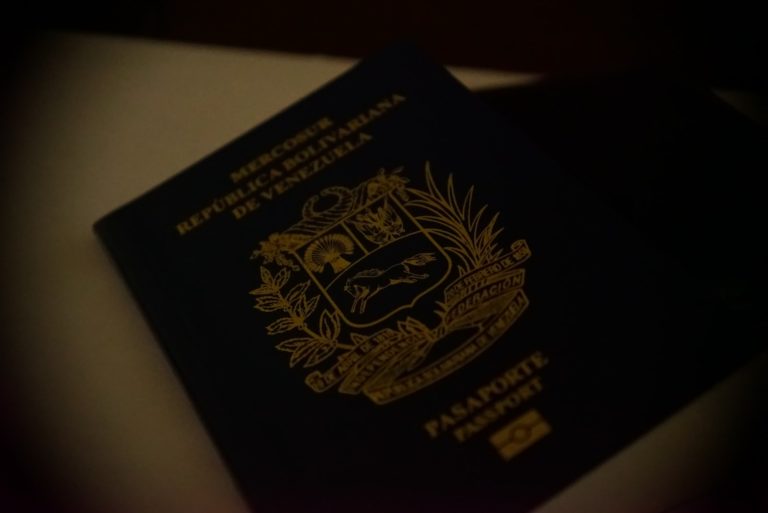What is a Green Card Joint Sponsor?
The duties of a financial co-sponsor in relation to an Affidavit of Support (Form I-864)
- What is a Joint Sponsor?
- When Do I Need a Joint Sponsor?
- What are the Responsibilities of a Joint Sponsor?
- When Do Obligations of a Joint Sponsor Begin/End?
- What if the Joint Sponsor Does Not Fulfill the Obligations?
- How to Become a Joint Sponsor?
- What are the Requirements of a Joint Sponsor?
- Who Can Be a Joint Sponsor?
- How Many Joint Sponsors is one allowed to have?
The Our Love Visa Experience
Our Love Visa has a simple mission. We believe it should not be difficult or expensive to bring couples together. OLV has helped thousands of couples navigate the immigration process, and it would be a privilege to help you too.
What is a Joint Sponsor?
A joint sponsor, also known as a financial co-sponsor, is a U.S. citizen or permanent resident who assumes the legal responsibility of financially supporting an applicant for a family-based green card. This option is typically used when the income and assets of the primary sponsor and their household do not meet the minimum financial requirement. Prospective joint sponsors may feel hesitant due to the legal commitment, but there is no need to worry as the joint sponsor’s obligations have a limited duration, and it’s rare for them to actually provide financial support. The concept of joint sponsorship serves as a type of safeguard for the U.S. government, ensuring that the financial responsibility of supporting the green card holder will be met in case the primary sponsor fails to do so in the future.
When do I need a Joint Sponsor?
A joint sponsor is often required when the primary sponsor and their household are unable to meet the minimum financial requirement for a marriage-based green card with their income and/or assets.
Other common situations that require a joint sponsor include when the primary sponsor’s income for the previous tax year does not meet the requirement, or when they use non-U.S. income that is reflected as a negative amount on their federal income tax return.
The minimum required income for sponsors is usually 125% of the Federal Poverty Guidelines for their household size and location, which is currently $22,887 for a couple without children who reside in the 48 contiguous states. If income falls short, assets can be used, but these assets must be worth 5 times the difference between the joint sponsor’s income and the minimum required income.
What are the responsibilities of a Joint Sponsor?
A joint sponsor can provide assurance that the spouse seeking a green card will receive adequate financial support to cover their basic living expenses and avoid becoming a “public charge” upon their arrival in the United States, meaning they would become reliant on government benefits. As such, the joint sponsor is responsible for fulfilling several obligations until their obligations are completed.
- The joint sponsor is responsible for providing financial support to the marriage-based green card holder, which entails maintaining a minimum annual income of 125% of the Federal Poverty Guidelines for their household size until their obligations to the green card holder come to an end.
- The main objective of having a financial co-sponsor is to ensure that the green card holder will not become a public charge, meaning that they will not rely on government benefits for their basic needs. However, not all public benefits make a person a public charge. The US government distinguishes between cash assistance, such as Supplemental Security Income (SSI), and non-cash or special-purpose cash assistance, such as Medicaid and unemployment compensation.
- In case the green card holder receives public charge benefits from a federal, state, or local government agency before the obligations of the joint sponsor end, the sponsoring spouse and joint sponsor may be required to reimburse the agency for the amount of those benefits. However, if the green card holder receives non-public charge benefits, such as Medicaid or unemployment compensation, the sponsoring spouse and joint sponsor will not be liable to reimburse the government for the value of those benefits.
- To avoid any potential issues related to public benefits, it is crucial for joint sponsors and sponsoring spouses to fully understand the rules and regulations surrounding the use of government benefits by green card holders.
- Non-cash assistance and “special-purpose” cash assistance, such as Medicaid and unemployment compensation, are considered non-public charge benefits, and the joint sponsor and sponsoring spouse will not have to repay their value to the government. However, some government agencies may take the joint sponsor’s income into account when assessing the green card holder’s eligibility for benefits, which may result in the green card holder being denied benefits or receiving a lower amount.
A Joint Sponsor is not responsible for:
- They are not responsible for the marriage-based green card holder’s private debts, including taxes, credit cards, medical or student loan debts, mortgages, or rent payments.
- The joint sponsor is not responsible for the marriage-based green card holder’s interactions with law enforcement.
When do the Obligations of a Joint Sponsor Start and End?
When the Marriage-based green card is approved, the obligations of the sponsor begin.
The responsibilities of a joint sponsor come to an end when any of the following events occur for the marriage-based green card holder:
- Attains U.S. citizenship
- Works 40 quarters (10 years) in the United States
- Abandons permanent residence in the United States
- Passes away
- Receives approval for a new green card after being placed in removal (deportation) proceedings.
If the joint sponsor passes away, their obligations also come to an end. However, if they had any outstanding financial responsibilities to the marriage-based green card holder before their death, their estate may be liable for fulfilling those debts. On the other hand, if the relationship comes to an end through a divorce, the joint sponsor’s obligations would continue.
What if the Joint Sponsor’s obligations are not fulfilled?
If the joint sponsor fails to provide financial support, the marriage-based green card holder may take legal action against them to obtain the support they need. This means that the green card holder could file a lawsuit against the joint sponsor to receive the difference between their income (if any) and the 125% poverty guideline, whether their income simply fell below that level or the joint sponsor failed to provide that support.
In the event of failure to reimburse the government for the use of public benefits, the agency that provided those benefits may sue the sponsors to collect that money, including collection costs and legal fees. However, in practice, there have been few government actions to obtain reimbursements for these benefits. (Visit the USCIS website for the latest details regarding public charge.)
If the joint sponsor fails to update their address, they may be subject to a fine of anywhere between $250 and more than $5,000. The fine amount varies depending on whether the joint sponsor had knowledge of the marriage-based green card holder receiving public benefits that would require repayment or simply failed to inform the government about the changes. Please consult the USCIS website for further information.
Check your eligibility for a marriage-based green card and learn more about how to complete the I-864 and other required forms.
How to Become a Joint Sponsor
To serve as a joint sponsor, one must fulfill the same prerequisites as a sponsoring spouse. This implies that they cannot merge their income and assets with those of the sponsoring spouse and their household to satisfy the minimum income criteria. Additionally, they must fill out and sign the Affidavit of Support (Form I-864). It should be noted that the sponsoring spouse is required to complete a separate copy of this form.
What are the Requirements of a Joint Sponsor?
- Must be a U.S. citizen or green card holder
- Must be at least 18 years old
- Must reside in the United States or a U.S. territory, but not in either spouse’s household
- Must have a total household income equal to at least 125% of the Federal Poverty Level guidelines for their household size and location for both the most recent tax filing year and the current year
- Must be willing to accept joint liability with the sponsoring spouse for financially supporting the spouse seeking a green card.
Refer to the documents needed for a marriage-based green card for a full list of documentation required for the joint sponsor.
It is crucial to note that the U.S. Department of Homeland Security (DHS) has recently suggested an increase in the minimum income requirement’s effective threshold from 125% to 250% of the Federal Poverty Guidelines for a sponsor’s household size and location. Additionally, the spouse seeking a green card may need to provide proof of their financial ability to support themselves, which is not presently mandated under immigration policy.
Who Can be a Joint Sponsor for a Marriage-Based Green Card?
A joint sponsor can be anyone who meets the aforementioned requirements, and they do not need to have any relation to either the sponsoring spouse or the spouse seeking a green card. They could be a friend or family member and do not need to reside with either spouse. However, if they do live together, they must fill out Form I-864A (the “Contract Between Sponsor and Household Member”).
To satisfy the minimum annual income requirement for financial sponsorship, a joint sponsor may include income and assets from members of their own household, such as adult children, adult siblings, and parents.
To be considered household members and have their income and assets included in the joint sponsor’s financial support, these individuals must meet certain criteria. They must have either been claimed as a dependent on the joint sponsor’s most recent federal income tax return or have lived with them for at least 6 months. Additionally, the joint sponsor may also include any adult they claimed as a dependent, even if they did not live with them. If household members or adult dependents contribute to meeting the minimum annual income requirement, they must each fill out Form I-864A and sign it along with the joint sponsor. The completed form should then be attached to the joint sponsor’s Form I-864.
How Many Joint Sponsors is one allowed to have?
A green card applicant’s spouse can have a maximum of two joint sponsors, besides the sponsoring spouse who is the primary sponsor. Typically, a second joint sponsor is required only if there are multiple applicants listed on a single green card application, such as the spouse’s children. This increases the minimum annual income required, and the second joint sponsor would agree to support the remaining applicants that the primary sponsor and first joint sponsor cannot support financially.
A joint sponsor, also known as a financial co-sponsor, is a U.S. citizen or permanent resident who assumes the legal responsibility of financially supporting an applicant for a family-based green card. This option is used when the income and assets of the primary sponsor and their household do not meet the minimum financial requirement.

Our Love Visa makes your immigration process easy, fast, and worry-free, guaranteed. We provide you with complementary tools and resources free that help you plan your future in the United States together. Learn about how OLV is helping couples through their immigration journey.





